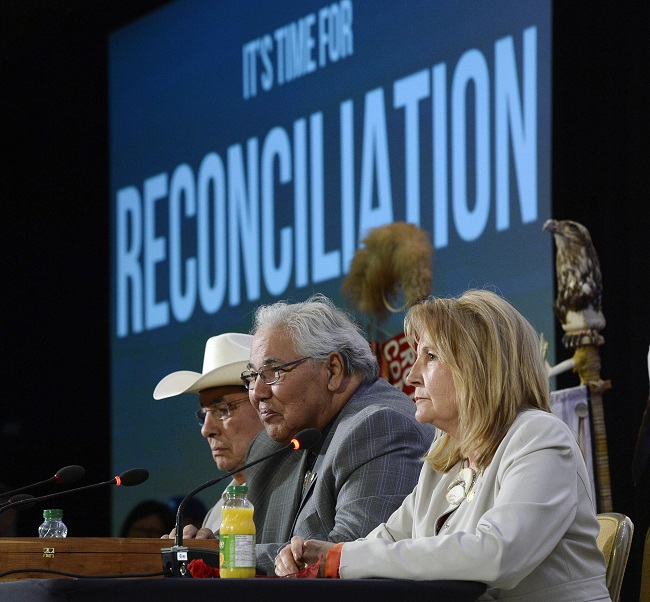Former Truth and Reconciliation Commission Commissioner Marie Wilson is challenging Canadians to think about how to incorporate reconciliation, post TRC.
Wilson was a guest speaker at a diversity conference in Regina this week. Her presentation focused on how diversity to include First Nations, Inuit and Métis peoples can serve as a vehicle for ongoing change.
“Diversity in the amount we spend on Indigenous education. Diversity in the length of sentences that go to Indigenous offenders. Diversity in the length of time served before parole is granted. Diversity in the access to healthcare, to jobs and to opportunities. Glaring diversity in the measures of hopelessness, suicide, murdered and missing,” Wilson said.
Wilson as commissioner, travelled to 77 communities, to hear from 7,700 people about their experience at residential school. She called the TRC the single largest public response to an Indigenous issue in the nation’s history.
Wilson says despite the rich diversity in Canada, First Nations and non-First Nations have lived completely separate lives.
“We have lived legally sanctioned, separate and inequitable lives. We have not grown up together. We’ve been raised and educated in oblivious ignorance of each other in this country,” Wilson explained. “Now we face the enormous challenge of trying to reconcile with strangers, as we endeavor to embrace diversity.”
The TRC produced a final report, with 94 calls to action, with several levels of governments pledging to take action.
“Please do not get tired of hearing about this and learning further about it. Make efforts to recognize the expertise in your midst. There are survivors in every region of this country. Become aware of and celebrate the extraordinary individuals in your respective regions and communities,” said Wilson.
(PHOTO: Truth and Reconciliation Commission. Marie Wilson (right) Chair Murray Sinclair (middle) and Wilton Littlechild (left). Photo courtesy of possiblecanadas.ca)
